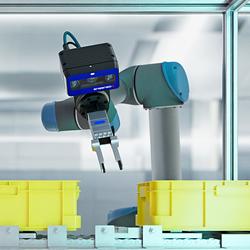Pixus Technologies Announces New Overview Brochures
Pixus Technologies, a provider of embedded computing and enclosure solutions, has released a new overview brochure that highlights the companies capabilities and core product lines.
Pixus Technologies, a provider of embedded computing and enclosure solutions, has released a new overview brochure that highlights the companies capabilities and core product lines.
The new Pixus overview brochure features a brief history of the company, details on the 4 main product lines, and notes on its customization, ruggedization, and simulation/analysis capabilities. The main product lines includes Chassis Platforms, Backplanes, Instrumentation Cases, and Components. As OpenVPX is a core product line for the company, the architecture is the primary focus of the brochure. Other standards included are cPCI Serial, AdvancedTCA, MicroTCA, and legacy VME/64x and CompactPCI.
The brochure will be posted on the companies literature page at http://www.pixustechnologies.com/about-pixus-technologies/literature. For more information on Pixus products and services, contact the company at info@pixustechnologies.com or call one of the local offices listed on the Web site.
About Pixus Technologies
Leveraging over 25 years of innovative standard products, the Pixus team is comprised of industry experts in electronics packaging. Founded in 2009 by senior management from Kaparel Corporation, a Rittal company, Pixus Technologies' embedded backplanes and systems are focused primarily on ATCA, OpenVPX, MicroTCA, and custom designs. Pixus also has an extensive offering of VME-based and cPCI-based solutions. In May 2011, Pixus Technologies became the sole authorized North and South American supplier of the electronic packaging products previously offered by Kaparel Corporation and Rittal.
Featured Product

3D Vision: Ensenso B now also available as a mono version!
This compact 3D camera series combines a very short working distance, a large field of view and a high depth of field - perfect for bin picking applications. With its ability to capture multiple objects over a large area, it can help robots empty containers more efficiently. Now available from IDS Imaging Development Systems. In the color version of the Ensenso B, the stereo system is equipped with two RGB image sensors. This saves additional sensors and reduces installation space and hardware costs. Now, you can also choose your model to be equipped with two 5 MP mono sensors, achieving impressively high spatial precision. With enhanced sharpness and accuracy, you can tackle applications where absolute precision is essential. The great strength of the Ensenso B lies in the very precise detection of objects at close range. It offers a wide field of view and an impressively high depth of field. This means that the area in which an object is in focus is unusually large. At a distance of 30 centimetres between the camera and the object, the Z-accuracy is approx. 0.1 millimetres. The maximum working distance is 2 meters. This 3D camera series complies with protection class IP65/67 and is ideal for use in industrial environments.
